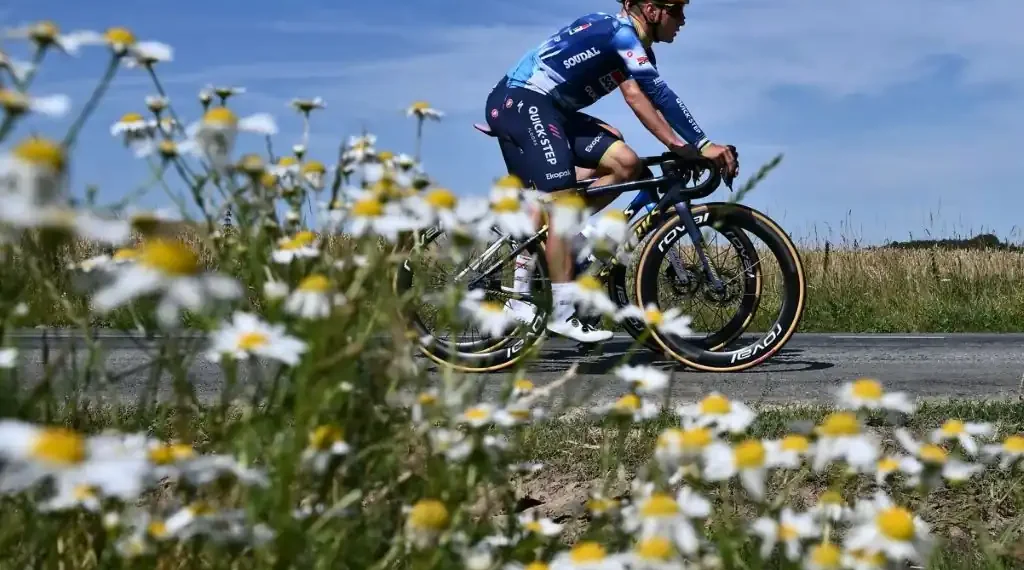Cycling May Lower Dementia and Alzheimer’s Risk, Study Suggests
Published Time: 09-22-2025, 10:30 EDT
A new study has found that cycling as a form of everyday travel is linked to a significantly lower risk of dementia and Alzheimer’s disease. Researchers say the findings reinforce decades of evidence that regular physical activity supports brain health and could play a role in reducing the global burden of cognitive decline.
Cycling and Dementia: What the Research Shows
The study, published in JAMA Network Open, analyzed data from nearly 480,000 participants in the UK Biobank, a long-term health research project. Participants, aged 40 to 69 at the time of enrollment, were asked about their primary mode of transportation outside of commuting to work. Options included nonactive modes (car, bus, or train), walking, mixed walking, cycling, and mixed cycling.
Over a median follow-up period of 13.1 years, 8,845 participants developed dementia, including 3,956 who were diagnosed with Alzheimer’s disease. Compared to nonactive travel, cycling was associated with a 19% lower risk of all-cause dementia and a 22% lower risk of Alzheimer’s disease.
Researchers also found that cycling was linked to larger hippocampal volumes — the brain region central to memory and learning.
How Cycling Compares to Walking
Walking and mixed walking showed a 6% reduced risk of dementia, but unexpectedly, they were associated with a 14% higher risk of Alzheimer’s disease.
Experts suggest this may be due to older participants who already had mobility or balance issues choosing walking as their main form of transportation. Additionally, the study did not record walking pace, duration, or intensity — all factors that influence exercise benefits.
Dr. Glen Finney, a behavioral neurologist and director of the Memory and Cognition Program at Geisinger Health System in Pennsylvania, noted that walking pace matters. “Leisurely, short walks may not provide the same protective benefits as brisk, longer walks,” Finney said.
Genetics and Lifestyle Play a Role
The study also examined the influence of the APOE ε4 gene, the strongest known genetic risk factor for Alzheimer’s.
- Participants without the gene variant saw a 26% lower risk of dementia linked to cycling.
- Those with the gene still benefited but had a 12% lower risk.
Researchers noted that those who chose active travel were often healthier overall — more educated, less likely to smoke, and more physically active outside of transportation. Cycling groups were more likely to be men and had lower body mass indexes compared to their peers.
Expert Insights on Cycling and Brain Health
“This is the first large-scale study showing that cycling is linked not only to reduced dementia risk but also to larger hippocampal volume,” said Dr. Joe Verghese, professor and chair of neurology at Stony Brook University in New York. Verghese, who was not involved in the research, explained that cycling may benefit the brain by boosting cardiovascular fitness, increasing blood flow, and supporting neuroplasticity.
However, experts caution against overstating the results. Dr. Sanjula Singh, principal investigator at Brain Care Labs at Massachusetts General Hospital and an instructor of neurology at Harvard Medical School, pointed out limitations. “Travel modes were self-reported at a single time point, so habits may have changed over time. Most participants were White and healthier at baseline, so results may not apply to all communities,” Singh said.
Importantly, Singh emphasized that the study was observational. “It cannot prove that cycling directly prevents dementia — only that an association exists,” she noted.
How to Safely Incorporate Cycling Into Your Routine
For those considering adding cycling into daily life, experts recommend starting gradually and prioritizing safety:
- Consult your doctor before beginning a new exercise program, especially if you’ve been sedentary.
- Start with short, safe routes on bike paths before moving into traffic.
- Wear a helmet, reflective gear, and lights when riding in low visibility conditions.
- Travel with a partner when possible for added safety.
Indoor stationary cycling, although not studied in this research, may also offer similar brain and cardiovascular benefits, especially for those concerned about traffic or road conditions.
Walking for Brain Health
While the study suggests cycling has stronger benefits, walking remains an important and accessible form of exercise. Singh recommends brisk, purposeful walks of at least 30 minutes per day, while Verghese points to World Health Organization guidelines:
- Adults should aim for 150–300 minutes of moderate activity per week, or
- 75–150 minutes of vigorous aerobic activity weekly.
Brisk walking at a pace that makes conversation slightly difficult may provide greater cognitive benefits than leisurely strolls.
The Bigger Picture
Globally, more than 55 million people are living with dementia, according to the World Health Organization. That number is projected to nearly triple by 2050. The 2024 Lancet Commission estimated that addressing lifestyle factors — including physical activity — could prevent or delay about 45% of dementia cases worldwide.
Although no single lifestyle change guarantees prevention, this study adds to growing evidence that daily choices, like how we travel, can influence long-term brain health.
As Verghese summarized: “Cycling may be more than just exercise or transportation — it could be a way to support cognitive resilience as we age.”
This article was rewritten by JournosNews.com based on verified reporting from trusted sources. The content has been independently reviewed, fact-checked, and edited for accuracy, neutrality, tone, and global readability in accordance with Google News and AdSense standards.
All opinions, quotes, or statements from contributors, experts, or sourced organizations do not necessarily reflect the views of JournosNews.com. JournosNews.com maintains full editorial independence from any external funders, sponsors, or organizations.
Stay informed with JournosNews.com — your trusted source for verified global reporting and in-depth analysis. Follow us on Google News, BlueSky, and X for real-time updates.














